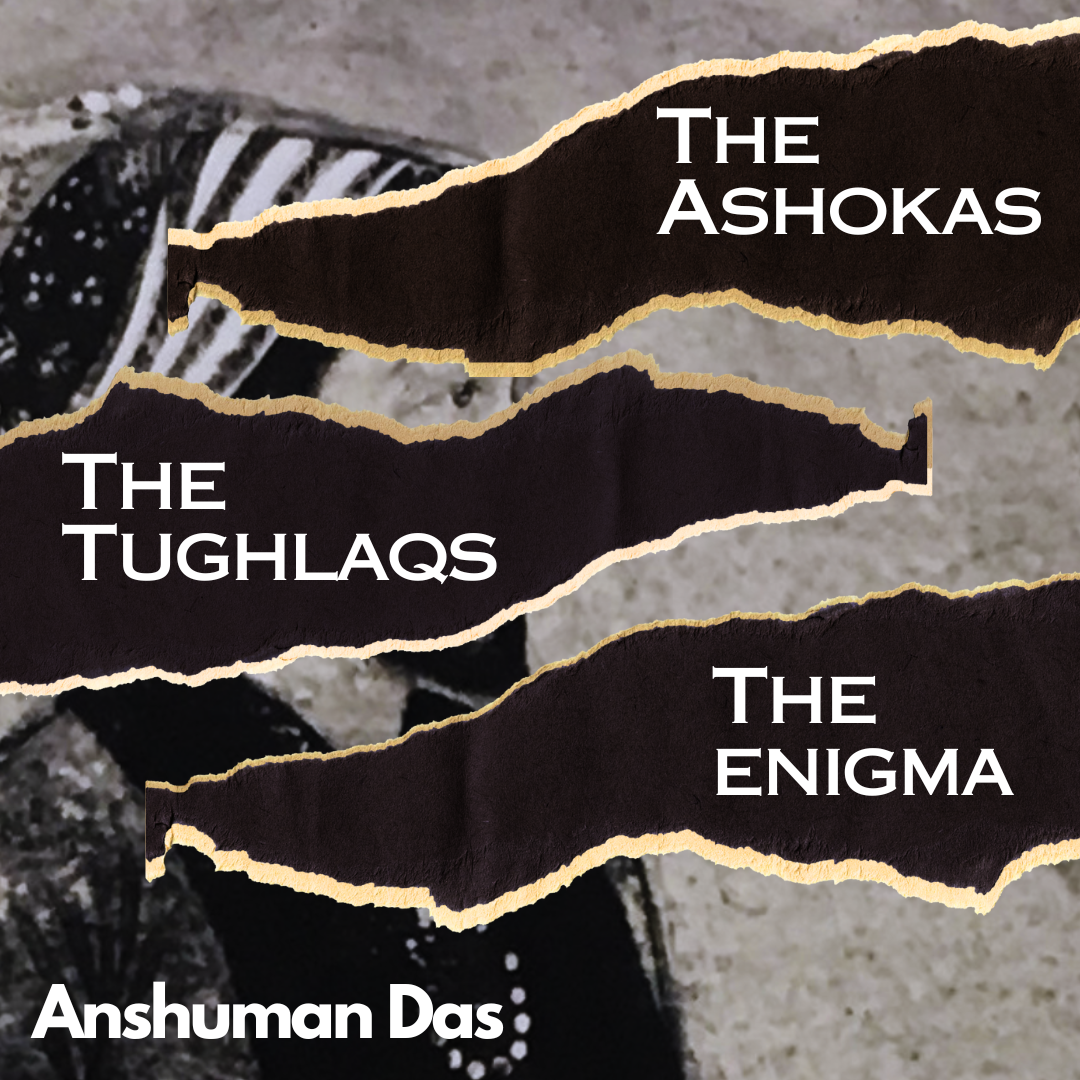Jinns at Ashoka’s pillar
By Anshuman Das, BFIA’25
Overlooking the famous Firoz Shah Kotla Stadium, officially renamed after the late finance minister, lie the ruins of Firozabad which was the Tughlaq Capital of Delhi sultanate. These ruins have always been a fascinating site for the people of Delhi, who have been brought up in a city with an immense saga of history. These ruins of a medieval settlement provide a dramatic contrast to the urbanized, chique and modern landscapes of contemporary Delhi. A graveyard of a conqueror’s tower of ambition, testimonies of a sultan’s efforts to erase the traumatic memories of his tyrant cousin and melting pot of the ancient city’s jinns- the supernatural creatures to whom people ask to fulfill their wishes. Perhaps, the heritage sites in India have always been like that; there’s a bit of history the books speak of, but a lot of what the people speak of.
Ibn-Battuta, an Arab traveler in the 14th century describes that Jauna Khan conspired an assassination against his father Ghiyasuddin Tughlaq and succeeded as the ‘Sultan of Delhi’, asserting the title ‘Mohmmad-bin-Tughlaq’. His rule was marked by some quirky decisions which shaped his contemporary image in our history books. Historians have also been less charitable to him, because of his feeble decisions like introduction of token currency, short term shift of capital to Deccan and poor agricultural reforms. His decisions soon came to be synonymized with the idiom ‘Tughlaqi Farman’, which describes a ‘foolish’ decision.
Futuhat-e-Firoz Shahi, a thirty two paged autobiography describes the reign of Sultan Firoz Shah Tughlaq, who succeeded his famous yet controversial cousin Mohammad-Bin-Tughlaq after his death. Firoz’s cousin was widely recognized as an ‘Inhuman eccentric’ for brutally killing his enemies and relatives who rebelled against him, henceforth, the new sultan received letters of forgiveness from the kins of those who were executed by his cousin. So Firoz decided to bury those letters in Mohammad- Bin-Tughlaq’s grave, hoping that god would forgive him for his ugly deeds.
Firoz Shah Tughlaq’s rule is marked by construction of nearly 1200 orchids and gardens around Delhi, Baolis and stepwells for better supply of water in the city. He constructed the famous Firozabad as the new Tughlaq capital of Delhi sultanate, which is today known as the spooky Firoz Shah Kotla Fort. Firoz Shah also established a department called ‘Diwan-e-Khairat’, which was meant to give alms to the poor. These Decisions of Firoz also helped in creating a good image of his family among the commoners, which was maligned by the unjust deeds of his cousin.
The Jami Masjid of Firoz Shah Kotla lies now in ruins, but is still a functional mosque and attracts visitors every Thursday and Friday. This mosque has an interesting story related to the decline of Tughlaq rule in Delhi. The invasion of Timur in the last years of fourteenth century was coincided by the decline of the nearly 100 year long Tughlaq rule in Delhi. Timur is believed to have offered prayers in this mosque and was heavily impressed by its architecture. He takes the masons involved in the construction of this Mosque to Samarkand, to erect much grander Islamic structures. Today only the gateway to the mosque survives as a witness to those days.
But nevertheless, the most prominent narrative of Jinns lies in the memories of Delhiites. According to the beliefs of Islam, Jinns are creatures created by god out of smokeless fire and are bestowed with the responsibility of guiding the human race. A very prominent jinn called ‘Iblis’ occurs among the popular beliefs of the Religion. Iblis is described as a jinn who rebels against the rules of God and is henceforth thrown out of heaven. He settles in Jahannam and assumes himself as’ Shaitaan’, whom christianity calls Satan.
Common folklore cite the name of Laddu Shah, a fakir who resided here during the 1975 emergency era came to know about the supernatural aura of this place and told about the occupation of Jinns in these ruins to his adherents, while on his deathbed. Since then, devotees have started flocking to these ruins every Thursday, with flowers, incense sticks, diyas and other offerings for the Jinns. The devotees pen down their wishes in letters and stick them on some or the other wall in this complex. An interesting sight seen here is that of some devotees practicing exorcism, establishing that they can ward off the ‘Buri Hawa’.
Firoz Shah Tughlaq uprooted an Ashokan pillar from the Topra Kalan village of Haryana and consecrated it here, at Firozabad. The pillar was placed on a three storeyed pedestal and was renamed as ‘Minar-e-Zareen’. The edicts on this pillar describe the commandments and administrative policies of King Devanam Piyadasi (Dear of the devatas), which happens to be the one of the imperial titles of Ashoka. 19th century English orientalist James Princep translated these edicts from Brahmi to English. One of the edict says:
“And whatsoever benevolent acts have been done by me, the same shall be prescribed as duties to the people who follow after me, and in this manner shall their influence and increase be manifest – by service to father and mother, by service to spiritual pastors, by respectful demeanor to the aged and full of years, by kindness to learn, to the orphan and destitute and servants and minstrel tribe.”
Interestingly, this Ashokan Pillar has become more of a pilgrimage than a site of historical significance. The local devotees believe that Laat wale Baba, the head of all Jinns in these premises resides near this pillar. How interesting it is! Devotees praying near an Ashokan pillar for fulfillment of their wishes, so is the aura of the era of Firoz Shah Kotla Fort, a place where history, religion and folklore form a beautiful and unusual amalgamation.




Comments